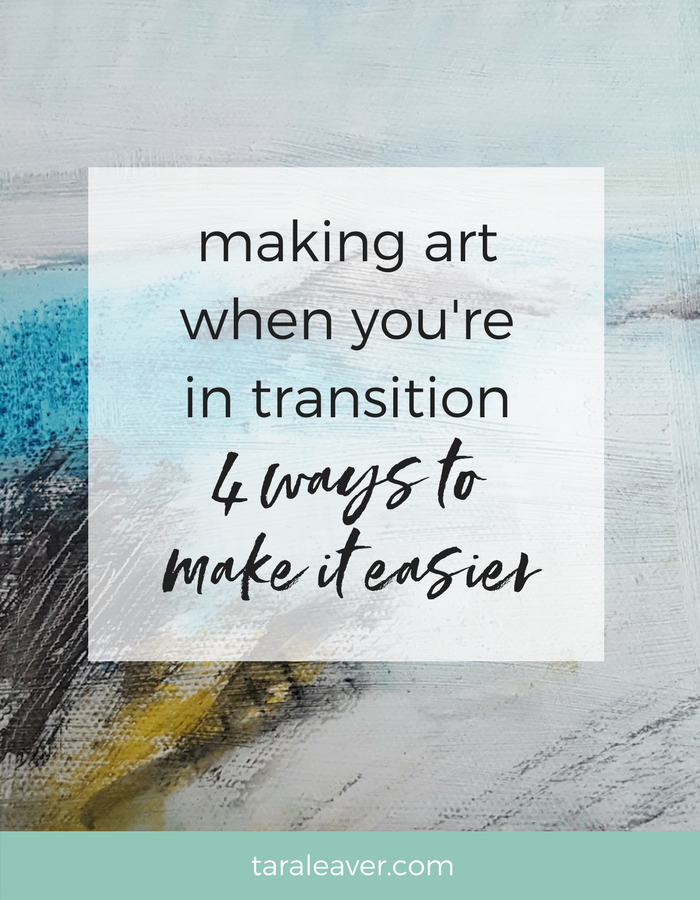
And so, after all these months, here I am in my new {rented} home in Cornwall! What a trip, literally and figuratively. The decision to give it a go was the easy part; it was everything that came after that pushed me to my own edges and beyond.
Upping sticks to a completely new location is as transformative a process as any other Big Life Change, and I surely must be that much wiser now I’m on the other side of all that chaos and fear and stress. {Right?!}
In one sense, because this move has actually felt like a coming home rather than a moving away, I don’t feel as uprooted as anticipated. In fact, my brain has been trying to suggest that it’s been ‘too easy’ {because we must not get complacent!}.
I’m not actually sure whether I’m in some kind of honeymoon period, or if indeed this is so right that it really can be that easy. Anything is possible.
Either way, I’m doing my best to stay present and move from moment to moment, day to day, without telling myself too many stories about what may or may not be happening or going to happen.
It’s both exhilarating to live this way and a little anxious-making – like standing on the edge of a cliff {something I – quite literally – do more often lately}, feeling the infinity of open space all around you, yet knowing that right this second you’re on solid ground.
The one thing that has suffered in all the upheaval is, perhaps unsurprisingly, the art. While I understand that moving across the country will almost inevitably impact the delicate interior workings of process, and perhaps even require the art to take a back seat while day to day practicalities are established and put in place, if art is part of who you are, not making it can feel wrong, like something important is missing.
Because it is.
I wanted to talk a little bit about this because hardly a day goes by that I don’t see someone beating themselves up about not making art enough, even when things are going on their lives that make it nigh on impossible.
What is enough?
Let’s just get clear about that first. Too often our ideas of ‘enough’ are based in shoulds.
- We think we ‘should’ be making more because we ‘should’ be selling it {often disguised as ‘want to’}.
- Or we ‘should’ have something to show on social media most days, if not every day, {which is a terrible motivator if you ask me, but one all too easy to slip into, as I know from uncomfortable experience}.
- Or because if we’re going to be audacious enough to call ourselves artists then we have to be making all the art, all the time.
Enough is actually what is enough for you. And yes, it’s entirely possible that in the midst of a life shift of any size, you won’t be making enough art in the sense that your soul needs it.
I haven’t been. For me it feels like a small itch at first, and if it continues to be neglected it becomes an antsy feeling, and later can develop into irritability, restlessness, and swearing at inanimate objects.
So let’s say you’re clear that when you say ‘I’m not making enough art’, you mean for yourself. You are the first person always to be making art for. If that feels selfish, know that if you’re not doing that, your art will lack integrity and slowly eat away at you. Besides which, it’s not actually necessary to justify why you need to make your art. It just feels that way sometimes.
So what can you do to shift out of not enough and into, at the very least, ‘just enough’?
I’ve been looking into this. 🙂 One thing I’ve been finding challenging, and I realise not everyone has this ‘problem’, is transitioning from a large dedicated studio space to no studio space. My landlord is an artist and there was talk of possibly sharing his studio, but that remains uncertain at time of writing. Which means another solution must be found.
My new kitchen has a high sloping glass ceiling, which gives it the most fantastic light. At first I set up a small art station on a table that sits partially under the stairs, and I’m not gonna lie, it feels cramped and not enticing. I spent a few days avoiding it, despite having set everything up.
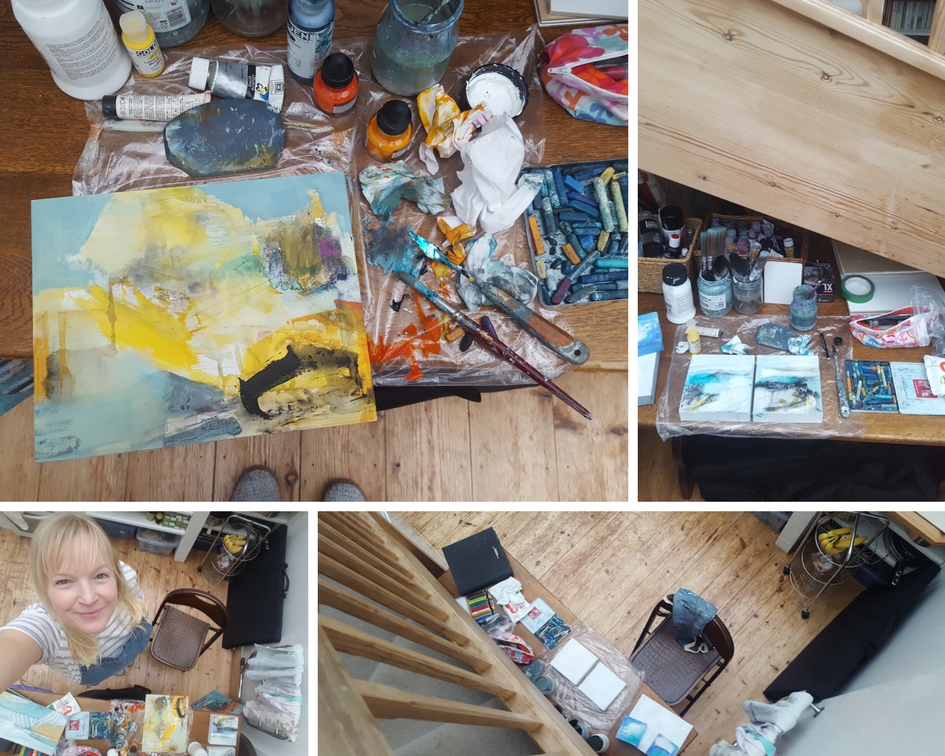
But the itch was getting itchier, so I used that to get myself at least doing something, even if it wasn’t particularly satisfying and felt unfocused. It’s so easy to fall into black and white thinking {ironic, colour lovers that we are}, and start telling ourselves all sorts of nonsense about how if we don’t have more space, or more time, or whatever, we can’t even start. I’ve been guilty of that this past week.
Fortunately I caught it, and realised that the itchiness needed to be bigger and more compelling than all the whining my brain was doing about what I no longer have. Besides which, it’s entirely possible that I will be able to share my landlord’s studio, or find a place to rent myself. Something will work out.
There really are no excuses that are truer than the need to be taking responsibility for our own fulfillment.
The wave
Possibly my favourite metaphor of All Time {along with the entire art process as metaphor for life}, is that of the wave. A wave never stops moving, its phases each have their own character, and each stage of it is an integral and essential part of it.
My personal least favourite part is the ‘sucking back’ part, when the wave has spent itself and needs to rebuild for the next one. This typically looks like not much happening at all, no inspiration, or ideas but no motivation, or little time, or other things needing to take precedence.
It’s a time when patience is required, and those of us who are not abundant in that {ahem} may find ourselves fighting it. Which of course only makes the whole thing worse.
A big life change {and smaller ones too, it doesn’t have to be all drama 😉 } is likely to put your art into sucking back mode. There are ways to embrace this if, like me, you struggle with the waiting. You cannot force a wave to fold before it’s ready! {I’ve tried.}
Here are four things I’ve been doing that have allowed me to at least stay in the game, if not to the degree I might wish:
1. SPACE
Set up an area, within whatever space is available, where you can lay out a few basic supplies and jump in and out without it being a big kerfuffle. {Because your brain will take every barrier to entry, no matter how tiny, and make it seem huge and insurmountable. This is never the whole truth.} I have even been making just a mark or two in passing over the course of a day.
2. PERCOLATE
Make the most of any ideas you are having right now, even if the oomph or time/space required to carry them out is lacking. I’ve been making notes in my phone about a new series I want to make. I have a concept and a bunch of titles, which might be a bit backwards, but I’m excited to see how they might evolve into paintings.
I also spend time noodling around in my head with painting ideas – imagining palettes, subjects, combinations of marks, what size I’d do them and on what substrates. It can all percolate so when I do eventually get in front of the easel there’s something to jump off from.
3. CONTAINER
Join a challenge to help motivate you, even if you have limited parameters. I decided to join Carve Out Time for Art’s current five week #cotfapinkieswearchallenge, which is about committing to a project of your choice and sharing an image of your progress just once a week. Feels doable!
The container of time and focus that a challenge provides can be invaluable, but only if you also have at least a little time to devote to it. So you may actually have to…
4. RELEASE
Let things go. For the first few days I simply had to accept the itchy feeling and let it fester away while I focused on other things. I needed to allow myself to arrive in my new home, to unpack, to start to make it mine in small ways {since I’m only renting this place for six months}, to just sink into the present and flow with what was happening.
Sometimes there is going to be discomfort, and the quicker we can let that be just how it is, instead of fighting it every damn second and feeling accordingly constantly uncomfortable, the quicker it can pass and the easier it is to find creative solutions.
Focus
Another aspect of a transition is how effectively it can erode your focus. My overriding state since the move {other than delirious joy and excitement}, has been positively gnatlike. I simply have not been able to sit down and focus on anything for more than a few minutes at a time.
This isn’t the end of the world as I tend to lean that way anyway, but it has been approaching new levels lately and is of course not conducive to making art with the kind of absorption the best experiences of it tend to involve.
That’s why that fourth point, letting go, has been invaluable. I’m not going to pretend I’ve nailed it every day, but even being able to let go, in odd moments, of feeling like I’m meant to be doing something I’m not, or the sneaky shoulds that have started piling up, has freed me up to just ‘smile, breathe, and go slowly’, as Thich Nhat Hanh would say.
Transitions are by nature chaotic. They stir up more than just the physical objects in your life; emotions, memories, old habits and beliefs, hopes, fears, doubts, joy, everything gets swirled up in the maelstrom and can feel by turns confusing, upsetting, overwhelming, and exciting.
And what’s more, life is full of transitions. Some days I struggle with just the whole day-to-night thing. Although it may be our oldest habit and first recourse, beating ourselves up about letting the art slip is never the answer.
Baby steps are the answer. Creative thinking is the answer. Excruciatingly vigilant self kindness is the answer. And yes, patience is the answer. {Sigh.}
The art will happen. You can trust it. You can trust yourself. And in the meantime you can learn to ride that wave.
PS. Since finishing this post my easel and various other bits arrived! My kitchen is now about 50% harder to navigate but who cares! 🙂 I get to make art now, and the presence of the easel has helped hugely, which I think is partly psychological and partly because I’m not a ‘small art’ person.
What’s your experience of the effects of transitions and life changes on your art? Any words of wisdom for those of us going through it? Tell us in the comments!

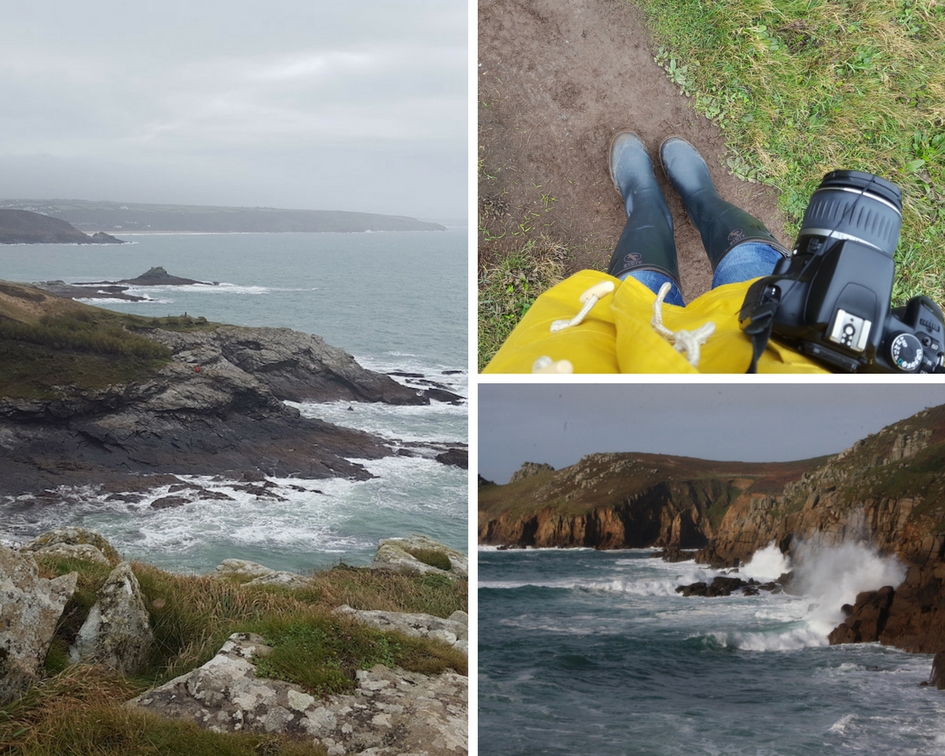
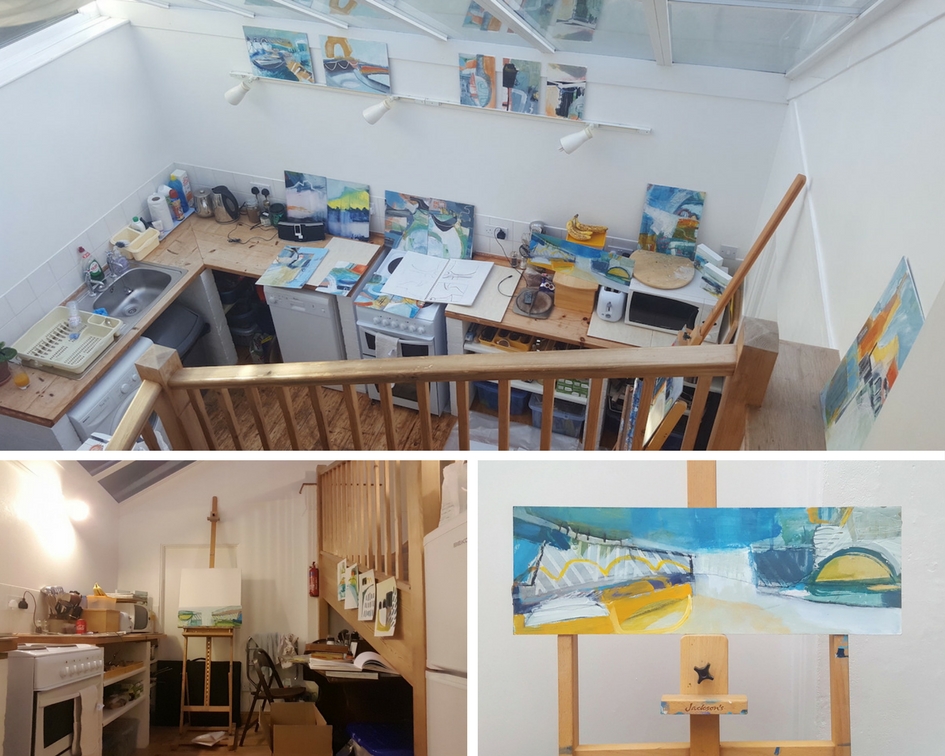
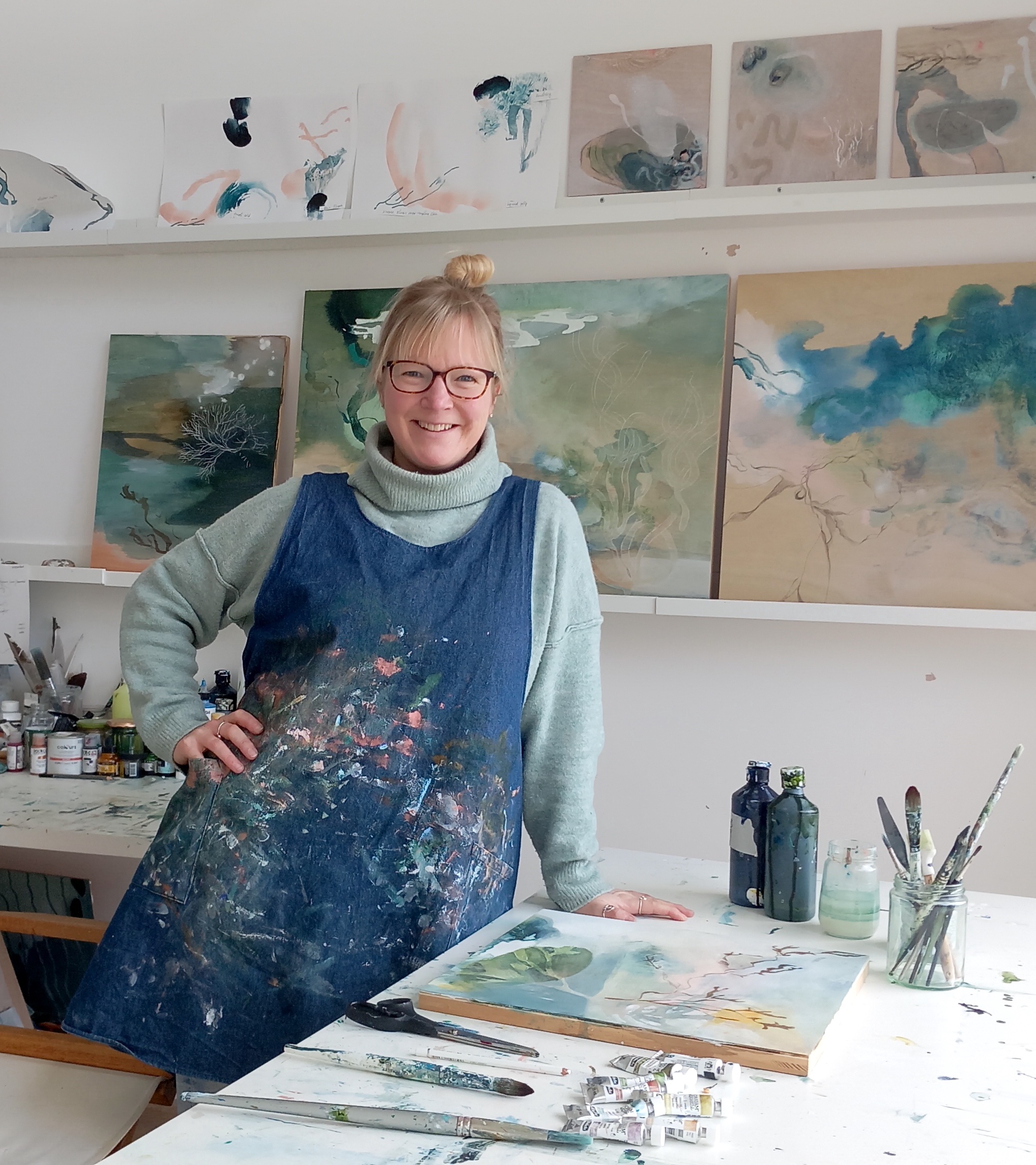
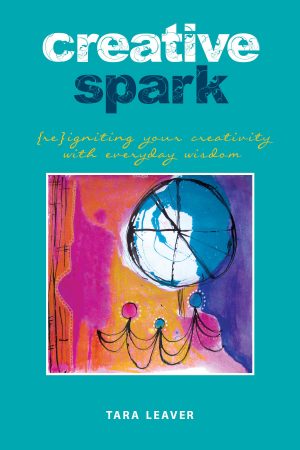
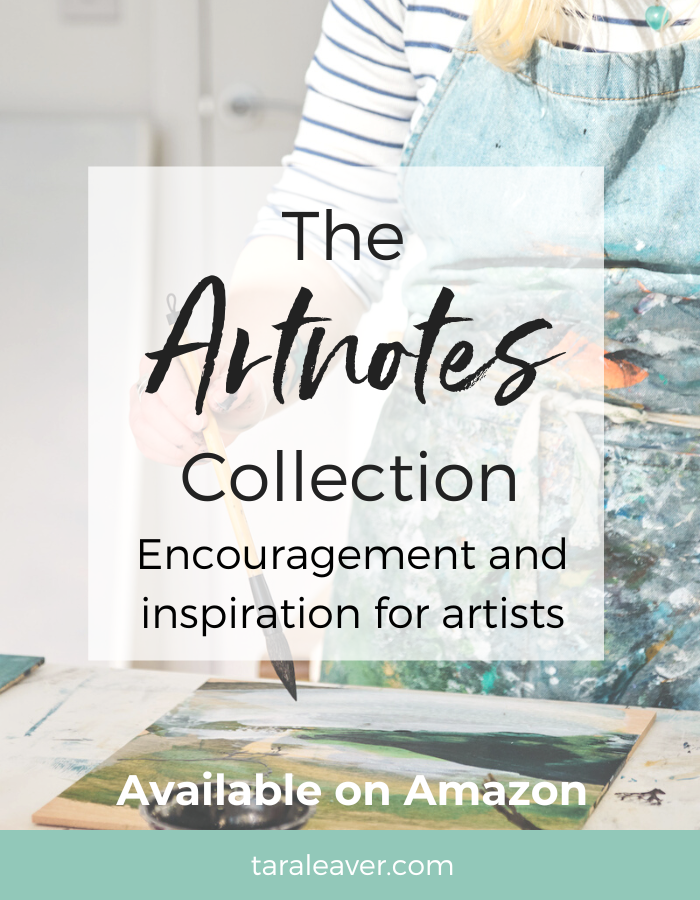
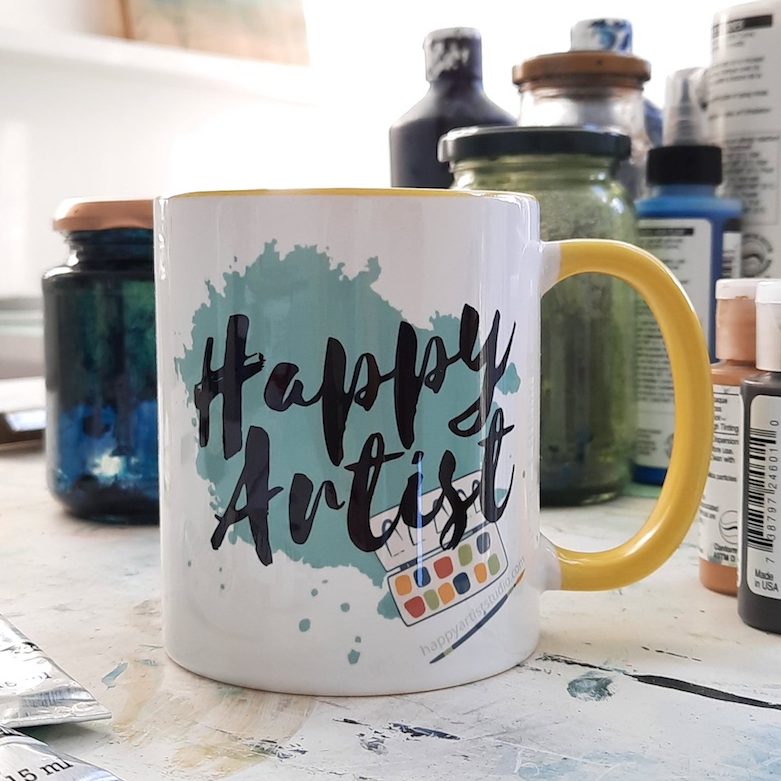
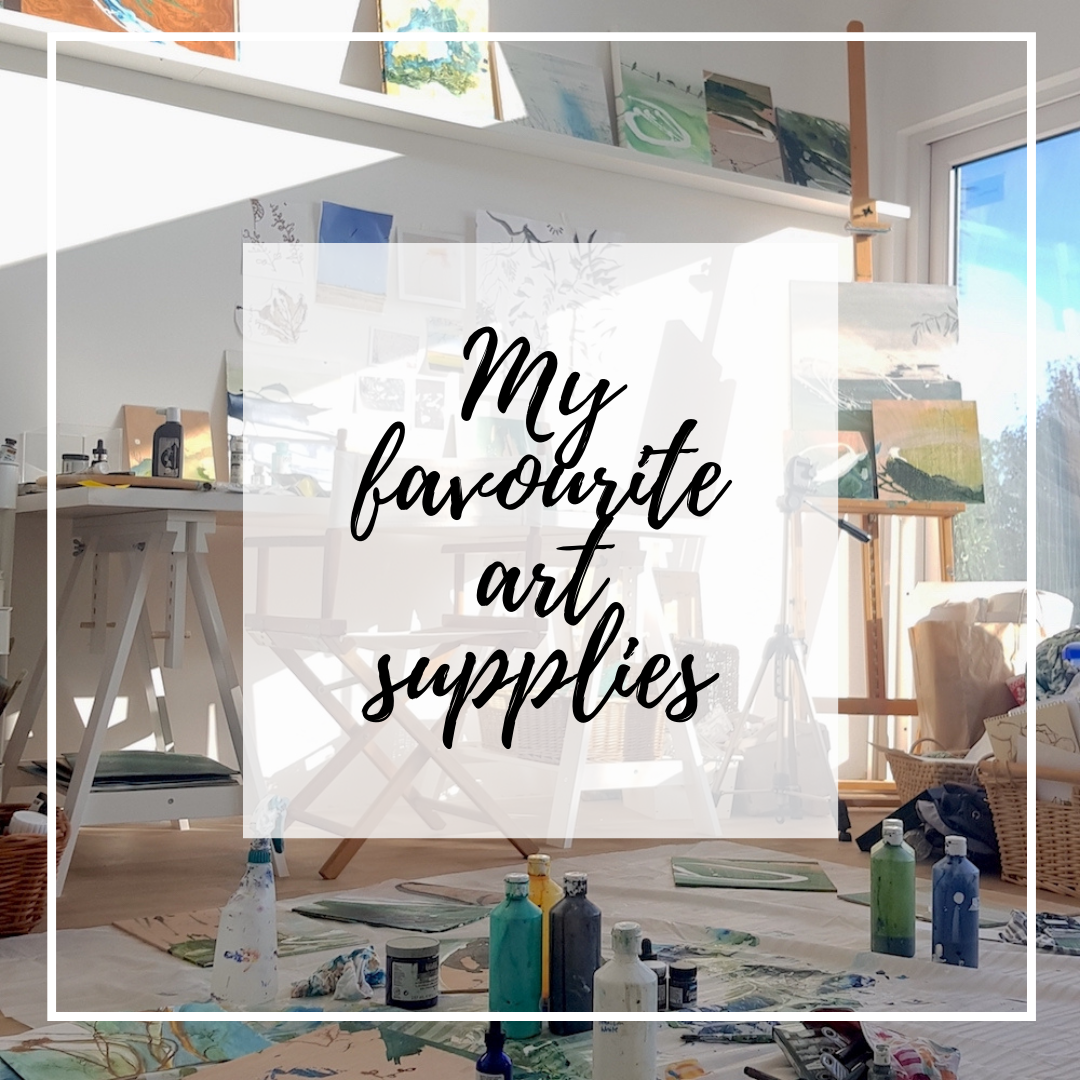
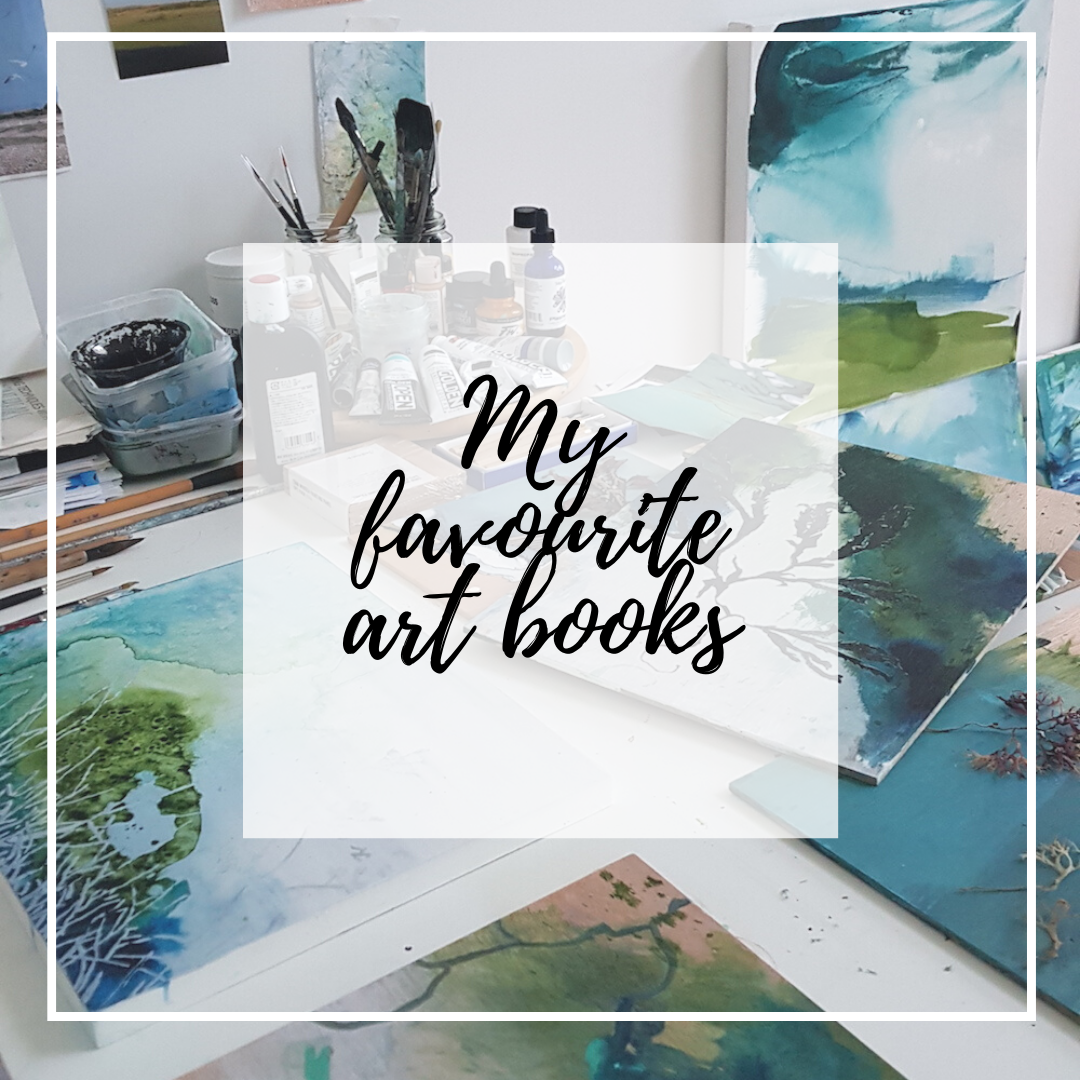
These transitions have happened to me too, throughout my lifetime as an artist, and I can identify with the process you outline above. I believe it’s a similar situation to “blank canvas syndrome”. My current transition has been due to a shifting of priorities in which making music has risen above making art in my “to do list”, simply because of pressure from my co-conspirators to learn my parts. That itchy feeling to paint has been troubling me for several months. In an attempt to scratch the itch I’ve just joined this; https://www.sketchbookproject.com/
Yes, I definitely see a correlation with blank canvas syndrome now you point it out; shifting from one place or state to another has left me feeling like I can’t remember what and how I like to paint at times!
Oh, I can totally relate to the awkwardness of a new space! Especially if you now that you cannot go back to the safety of you old creative area. Experienced something similar last summer when I started painting in our cottage. The first session was a nightmare, it felt like it was the first time I held a brush in my hands.
But i realized that I have to paint mysekf into the space, and already at day 3 the feeling of ease and relaxation returned. So my solution to most problems concerning art is: fiddle, paint, draw, play around with no descernable purpose. Everything will come in it’s time (sounds very laid back when I write about it, didn’t feel that laid back last summer ;-p )
Yes! I keep having that ‘um, I’ve forgotten how to paint’ feeling. lol. Love how you describe it as painting yourself into the space. I think that’s what I’m doing although I wasn’t as articulate about it! Am in full agreement about your solution. 🙂 Thanks Gina for sharing your wisdom, and for making me laugh as usual!
I’m happy I could “pay you back” at least a little bit ☺️
Thank you. Been thinking about this so much this week, I have not accomplished what I have set out. Life threw me a curve ball I had not considered. And it has greatly effected my art making. I felt I wasn’t doing enough (by my own standards) and I only now see, its just my own rule. And can i let myself of the hook for the moment. I can give space to it, and be more allowing. I can simply do what feels managable.
Ah I’m so glad it offered you some relief Julia!
Thank you so much, Tara, for these hugely inspiring insights!!! As always, you give us the gift of your candor, always sharing the highs and lows, letting us see that we’re not the only ones with challenges and obstacles. And giving us such useful tips and solutions. I’m so excited for you about your move to Cornwall – terrifying and joyful and everything in between!! I can identify with you about the dilemma about space and how to navigate new dimensions. I totally gave up my living room and made a tiny dining area into a sitting room and dining room combined. It took awhile to get everything organized and become spatially oriented, but it was worth the 2 months it took to accomplish it. Hang in there, girl, we’re all rooting for you!! xo
So pleased you found something helpful here Marianne! You’re right – ‘spatially oriented’ is such a good way to put it! It does feel disorienting when you’re used to moving in a certain way through your space and knowing where things are and placing them in a way that makes sense to you, and then having to recalibrate all of that. But I guess that’s one of those lovely art/life metaphors. 🙂 Thank you for the kind words!
Hi Tara, Your writing on transitioning has struck the heart of the matter for me. At the beginning of the summer I left a forty-nine year marriage and due to circumstances at this present time my personal living space is reduced to one room. (I do have use of the living areas of my daughter’s home). In my personal space I have a writing area, not large enough for painting (watercolour). I have a sewing table that accommodates my two machines and supply containers, again no space for painting. I relate to the need to scratch the itch but having all the incidentals of life blocking the ability to “scratch”. I receive your emails, some I have opened, most not until today. Serendipity I would say. I am visiting my youngest daughter and her family right now who live on a small acreage with horses and the most beautiful view of the Rocky Mountains and the most gorgeous sunsets over those mountains. My fingers are aching to hold a brush. When I return home I will make room somehow, somewhere to ease that ache. I want to thank you so much for your words that have reached my heart and soul. Wishing you joy.
Oh I’m so delighted the post helped you in some way Donna! I think sometimes it has to reach a tipping point {what I call the ‘f*ck it point’ in painting} where you suddenly feel ready to find SOME way to make it work SOMEHOW. Wondering if a table top easel would work for you – nice and small but can hold a decent sized canvas and easy to tuck away.
A table top easel sounds perfect. When the mind’s cluttered with so much the obvious gets lost.
“You are the first person always to be making art for”
So obvious now, but so easy to forget….Tomorrow I paint what moves me.
enjoying these snippets of motivation 🙂 Thanks
Yay! I do think this is a good thing to remember. 🙂 A bit like the whole ‘put your own oxygen mask on first’ thing.
Hi dear Tara, I’ve traveled the whole month in September with just a few name-card-size art done. I read a lot in the journey and reading changes the mind, so I’m also in the transitional waves right now. I mainly feel confused and I deal with it by reading art stuff and trying out a new art form, slowly.
From the author Shunmyo Masuno, a landscape architect and Zen priest, I’ve found relation between your words and his. I understand it as to see our heart like we see nature, be aware of the truth in nature and the one in each of us.
A short chapter about not fooling ourselves from his book is what I’m working on recently. He said (and I mentally translated) that to ignore the unseen is to fool one’s own heart, and when a person ignores the unseen of his heart, he ignores the heart of nature. This paragraph has sent me an unseen shock in my heart that I have no words for it, but then I thought, maybe it is even better to share it this way without my own murmurs. :p
I’m surprised to see Thich Nhat Hanh in the post, but not surprised that you’ve known him, his book content has saved me many times in my art crisis and during my low tide.
All the best Tara, for art always finds its way to the people who let it, I see it’s coming for you from the small and fine kitchen inside and the edge of the beautiful cliff outside. 🙂
Hello TARA. I so much apprecite your artful and encouraging
Blogs. What a godsend you are for all artists worldwide. We are
Not all In art for a living or profit. It’s what we were born with and need to do to fill a passion that nothing else can fill. I am
Nigh on 80 and have enjoyed many forms of art, particularly
Pottery and weaving but now I must return to watercolor but
Am having a hard time getting started again without a network due to being home bound. You are very inspiring to
Me and I want to thank you for your generosity in sharing your
Down moments as well as the good. It gives me comfort and
Confidence to get back to painting and creating! Love to you
And congratulations for following your dreams! Agnes
Pottery
Thank you for the kind words Agnes! So glad to be able to help other artists of all kinds in some way. I do think it’s important to share ALL parts of the process – I always say they’re all equally valid, even if we have preferences! Much easier to navigate the ups and downs that way.
Congratulations on your new move. So much of what you’ve written, has resonated in my own life too. I’ve had a triptych mulling around my head for a while. I’m being patient in it’s delivery, because other life events take precedence. But every time I go back, to do a little more, it’s like meeting an old friend. I remember you! Let’s do coffee and a few coats of ink/paint, or whatever.
In my early 40’s, with a teen, tot and husband – my life is in constant transition. Or at least, it feels that way. It’s a daily dance of this and that, usually with some unexpected event, thrown in at the last minute. Kind of like my art. This. That. Unexpected. Then, just roll with the moment. Why not create in that head-space, as good as any?
Thank you Chris! Love to think of my paintings as friends too {most of the time, anyway!}. And yes, I really am starting to feel like life IS constant transition, at different scales. Sounds like you have an amazing outlook on it all!